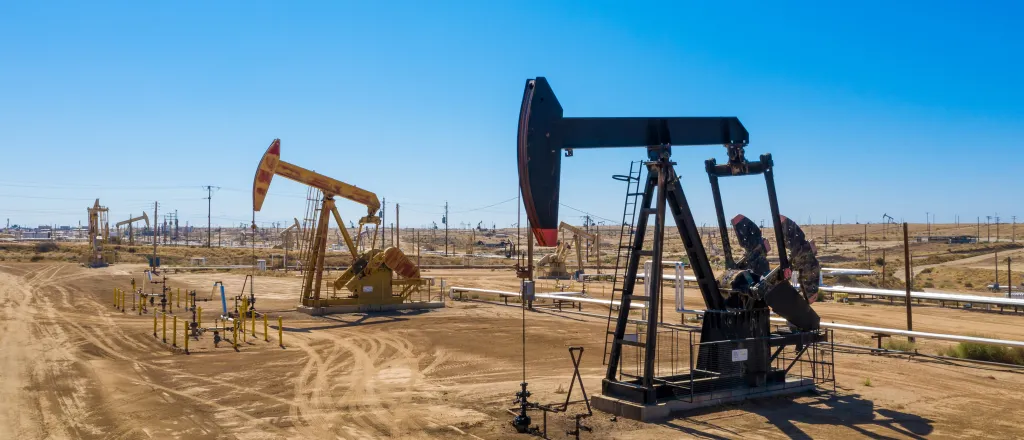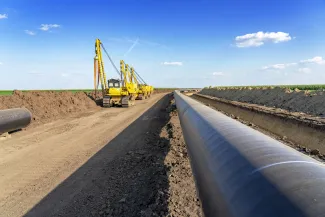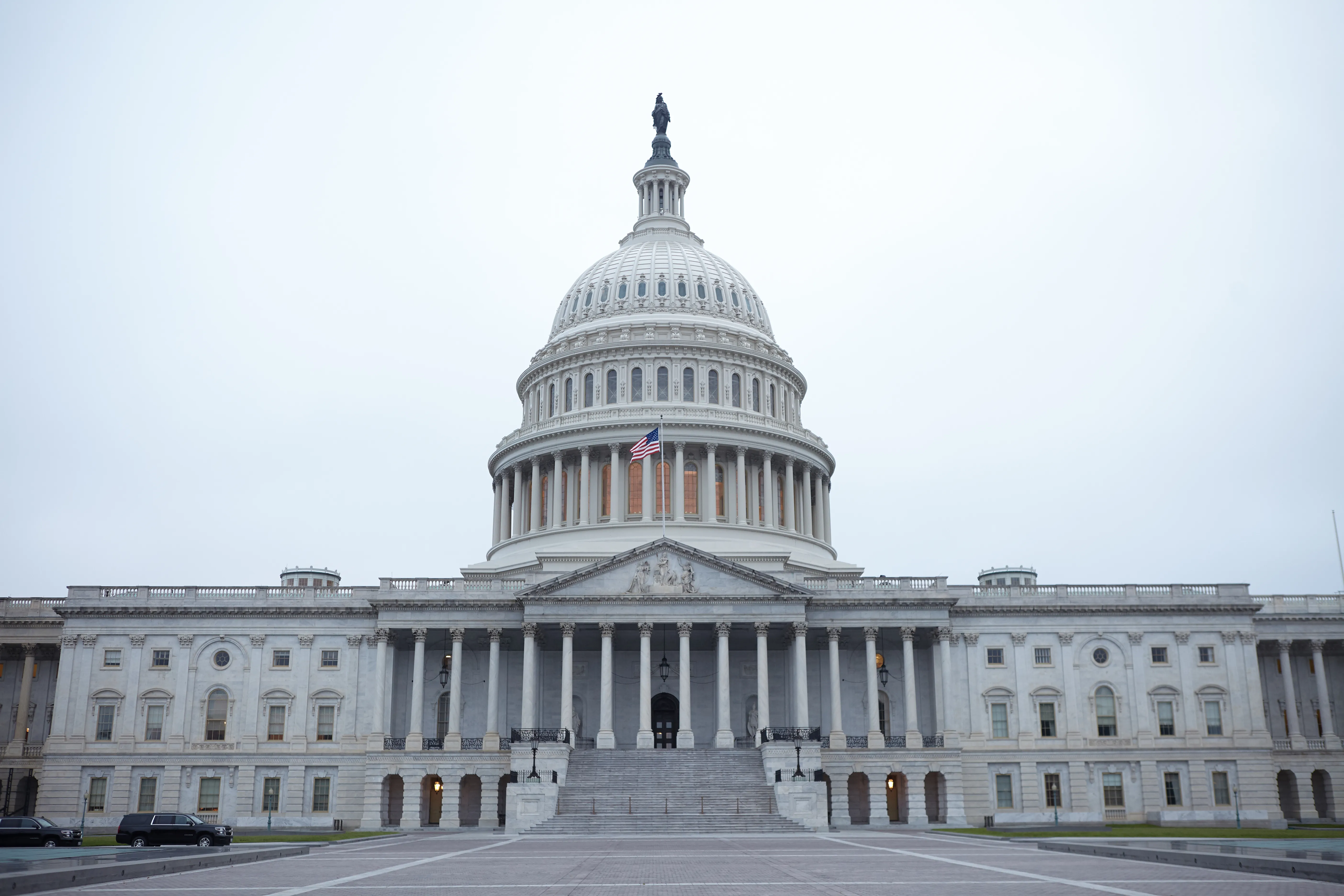
Colorado regulators approve oil and gas drilling plan on state land east of Aurora
(Colorado Newsline) Colorado regulators Wednesday gave the go-ahead to a sweeping oil and gas drilling plan on a large tract of state-owned land east of Aurora, with several conditions aimed at addressing concerns from nearby residents opposed to the project.
On a 3-1 vote, members of the Colorado Energy and Carbon Management Commission approved the 32,000-acre “comprehensive area plan” proposed by Denver-based Civitas Resources, which aims to streamline permitting for 156 new oil and gas wells at seven drilling locations in Arapahoe County. But they moved to require that Civitas use emissions-reducing electric drilling equipment, and left the door open to denying permits for proposed well pads nearest to several southeast Aurora subdivisions.
“I do see concerns with the CAP, and I do think there’s additional work that could have and probably should have been done,” said ECMC Commissioner Mike Cross. “But I still do think that it does meet our rules, and is approvable.”

Most of the area in Civitas’ CAP proposal consists of the sprawling Lowry Ranch property, a former U.S. Air Force missile launch site and gunnery range acquired by the Colorado State Land Board in the 1960s. Limited drilling has taken place on the property since the Land Board first issued a lease for oil and gas development in 2012, but the CAP’s approval could fast-track drilling in the area for the next six years.
Save the Aurora Reservoir, a community activist group formed to oppose the project, made their case against its approval in a two-day hearing last week, citing concerns about increased noise, truck traffic, air pollution and wildfire risk. They also worry about the proximity of the Lowry Landfill Superfund Site, on the northwest corner of the project area. Civitas agreed not to drill under the Superfund site at the Environmental Protection Agency’s request.
“We are devastated by the Commission’s decision,” Marsha Goldsmith Kamin, STAR’s president, said in a press release. “This is without doubt the wrong decision for the health, safety, and environment of our community.”
The approval also drew condemnations from state and national environmental groups, including the Sierra Club, which called the plan “reckless.”
“The grassroots efforts in Aurora have been powerful, passionate and persistent,” Ben Jealous, the Sierra Club’s executive director, said in a statement. “Members of this community deserve access to healthy air and clean water, and shouldn’t have to live in fear of fracked gas operations beneath their homes and schools.”
Two-year process
Civitas first submitted its CAP application in 2022. Jamie Jost, an attorney representing Civitas, told commissioners Wednesday that the company’s proposal had “evolved for the better” over the course of two years of community outreach and feedback, “including input and influence from STAR.”
“It’s a comprehensive area plan that’s the result of thousands of hours of consultation, cooperation and collaboration with multiple federal, state and local governmental stakeholders, oil and gas operators, mineral owners, community groups and citizens,” Jost said of the proposal.
But Jost also criticized the testimony from STAR and its expert witnesses during last week’s hearings, accusing the group of spreading “misinformation intended to incite fear.” Civitas was particularly adamant throughout the proceedings that STAR’s fears about induced seismic activity — a phenomenon that has been documented elsewhere but is considered a low risk in the geological formations drilled in northeast Colorado — are unfounded.
In a statement, Kait Schwarz, director of the Colorado branch of the American Petroleum Institute, called it “disappointing and revelatory” that environmental groups continue to offer “significant resistance” to drilling proposals following the passage of stricter laws and regulations in recent years.
“Our operators are proud to produce in Colorado, yet it is disheartening to encounter such opposition even when the regulations and requirements are strictly adhered to,” Schwartz said. “This application and decision should serve as a model for addressing future projects.”
None of the drilling sites proposed in the Lowry Ranch CAP would be closer than 3,000 feet from the nearest subdivision — satisfying the 2,000-foot setback requirement adopted by the ECMC in 2020 — but the plan’s opponents say it’s still far too close to neighborhoods, schools, recreation areas like the Aurora Reservoir and environmentally hazardous sites like the Lowry Landfill.
Commissioner John Messner was the lone vote against the plan’s approval. Trisha Oeth, the commission’s newest member, did not take part in the proceedings because they began prior to her appointment to the panel by Governor Jared Polis in June.
Messner objected to the “vague and noncommittal efforts” made in the proposal to minimize the project’s cumulative impacts on public health and the environment.
“The CAP application as a whole, as presented, does not meet the intent and requirements of our rules, and has not shown that it is protective,” Messner said.
ECMC staff recommended the Lowry Ranch plan’s approval earlier this year. It’s the fourth CAP considered by the commission since its 2020 rules overhaul, and Wednesday’s vote marks the fourth consecutive approval. But Commissioner Brett Ackerman said prior to the vote that “this one felt close.” Commissioners debated whether to delay a decision on the plan, but ultimately moved forward with an approval with the attached conditions.
“Like Commissioner Cross, I do not believe it’s perfect,” Ackerman said. “Like Commissioner Messner, I do have some concerns that it can more closely comply with the intent and specificity of our regulations with a little more work.”
Civitas will still be required to seek ECMC approval for each proposed drilling location in the plan through a process known as an “oil and gas development plan,” or OGDP. That process could include revisions to the proposed sites as a result of a required “alternative locations analysis,” commissioners said Wednesday.
“In order of the things that cause me the most concern, first and foremost would be the proximity of the primary line of well pads to the line of residential developments,” said Ackerman. “They feel a little deaf to some of the concerns of the nearby residents, as opposed to promoting maybe a couple of opportunities for working together with those residents to minimize impacts.”
Colorado Newsline is part of States Newsroom, a nonprofit news network supported by grants and a coalition of donors as a 501c(3) public charity. Colorado Newsline maintains editorial independence. Contact Editor Quentin Young for questions: info@coloradonewsline.com. Follow Colorado Newsline on Facebook and X.

















